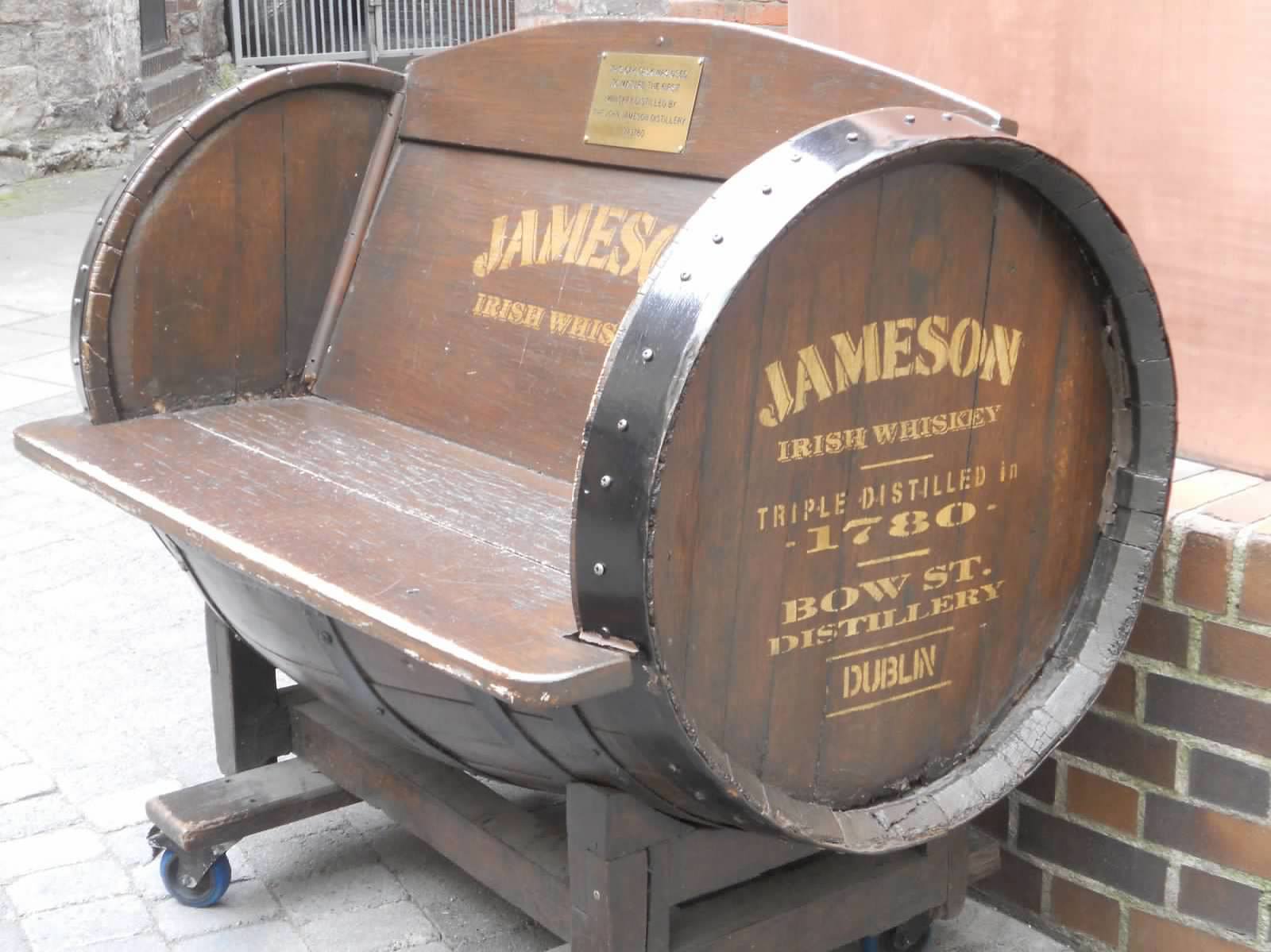Crafting the perfect barrel is an art form.
Winemakers around the world debate the virtues of the different types of oak used to make the barrels in which they age their wine. They'll argue that everything from the particular region of forest where the trees grew to the exact subspecies of oak used will subtly change the flavors.
Charring the barrels – also called toasting – imparts different flavors as well. Right now, my own vintage is aging in "long toast" barrels. That means instead of the usual three-hour char, the barrels toast for seven to eight hours. It's supposed to release more vanilla flavors into the wine. There's scant scientific evidence out there to back up the claims of using this process, but I trust my cooper (a professional barrel maker) enough to try it. I'll let you know how it goes.
Choosing the right barrels can make or break a good wine. And, as it turns out, it can do the same with whiskey...
The barrel used to age the first whiskey produced at the John Jameson distillery in 1780.
In the past two weeks here at Retirement Millionaire Daily, we've written about the benefits of wine and beer. But several readers asked, "What about other spirits? Does hard liquor have any benefits?"
The research on many kinds of hard spirits is still out... For example, there are dozens of articles purporting that gin is good for you because of the juniper berries used to flavor it. (Juniper has many proven health benefits.) And others argue that tequila could have healing properties because the cactus used to make it, agave, has so many benefits on its own.
[optin_form id="73"]
The problem is that there aren't many actual studies backing up those claims...
There's no clear evidence that juniper or agave provide similar benefits in alcohol as they do on their own. It's possible that the alcohol could chemically alter the extracts, rendering them useless.
Whiskey (or if it's Scottish-made, whisky), however, is a different story... with plenty of scientists researching its benefits.
The reason is those barrels.
After the distillation process, whiskey ages in oak barrels – sometimes for decades. Over time, the whiskey absorbs chemicals from the wood, giving it its signature taste and aroma.
The wood also imparts beneficial chemicals called polyphenols.
The type of polyphenol found in whiskey is ellagic acid. Research shows that ellagic acid reduces inflammation, raises healthy cholesterol, and even reduces the effects of diabetes.
So here are just a few reasons why you might want to consider a tumbler of whiskey after dinner...
1. Whiskey fights inflammation by lowering "free radicals."
In one study published in the European Journal of Clinical Nutrition, scientists saw a direct rise in blood-plasma-antioxidant levels in participants who drank a 12-year-old malt Scotch whisky. They attributed the rising levels to the ellagic acids found in the whisky. In comparison, fresh whisky that had yet to be aged in barrels didn't produce the same effect.
Whiskey might even protect you more than orange juice. In an Australian study done at Monash University, whiskey had so much antioxidant activity that it surpassed what you'd get from the ascorbic acid available in a glass of regular orange juice. This may also explain why people have used whiskey for centuries to fight off colds... something we might try this winter.
2. Whiskey raises "good" cholesterol and helps protect your brain against Alzheimer's disease.
Whiskey increases a type of cholesterol called high-density lipoprotein (HDL). You've probably heard HDLs referred to as "good" cholesterol... They help prevent the cells in your blood-vessel walls from dying. When inflammation damages the cells, they could die off. Instead, HDLs facilitate the repairing of the cells.
Moreover, we need cholesterol to protect our brains. In fact, higher levels of HDLs have been associated with a reduced number of damaging plaques. These plaques form during Alzheimer's disease. (There's even some research out there suggesting HDLs actively protect the brain from developing Alzheimer's disease at all.)
3. Whiskey fights diabetes.
Ellagic acid can also bind to the enzyme that releases glucose from the liver and act as an inhibitor... actively slowing down how much glucose your body releases. That helps keep blood sugar from spiking.
It's important to note that although whiskey has polyphenols, they aren't at the level you'll find in wine or beer.
So if you like whiskey, enjoy a glass every few days and rest assured you are getting some health benefits. Otherwise, continue to enjoy your beer or wine... and maybe add a bit of whiskey once in a while.
And if you aren't used to the strong stuff, here's Doc's advice: Ask the bartender to add a big splash of Coca-Cola. It adds some sweetness and a little fizz to soften the harshness. It's like "training wheels" for a novice whiskey drinker.
What We're Reading...
- If you're in Scotland this week, sign up for some free whisky... in the name of science.
- Whiskey or whisky – the history of the spirit.
- Something different: Is staring at your computer damaging your hearing?

